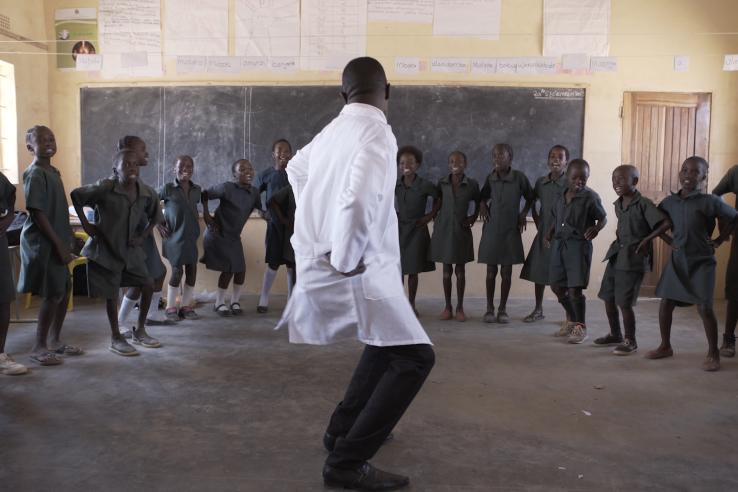The Evidence Effect: Evaluating Innovation in Development and Why it Matters

On June 27, 2025, J-PAL Europe convened European development actors, academics, philanthropy, and journalists to discuss The Evidence Effect in Paris. One of our goals was to affirm a much more positive version of the story about development impact than we were seeing around us. So much measurable progress has been made in recent years, and we believe European actors have a key role to play in funding and supporting global partners to make further advances in the years to come.
We are particularly thankful to French Foreign Minister Jean-Noël Barrot and Deputy Treasury Director Claire Cheremetinski, who underscored the importance that the French government places on open, innovative, and effective partnerships for development; as well as to Côte d’Ivoire Economy, Planning and Development Minister Nialé Kaba, who underscored the role that research and evidence play in her country’s planning and development.
We were lucky to have a large number of expert speakers join us for a series of quick panels that highlighted both the great strides made towards greater development impact and the potential of future gains.
Five key messages stood out from these discussions:
1) A wealth of high-quality evidence has been generated on development impact in the past two decades. This evidence is now driving decisions to promote greater effectiveness and cost-effectiveness in development programming, promoting the reallocation of resources to better improve, extend, and protect human lives. We heard about shifts in how AFD, FCDO, GIZ, and USAID have promoted cost-effectiveness in both their own funding decisions and those by the partner organisations and governments they support. Still, there are further advances to be made everywhere, including through better leveraging and sharing existing evidence and by improving the collection of cost data. European development actors will have a key role to play in the wake of the closure of USAID. Evidence on development impact is a public good, and mechanisms for funding this work sustainably should take this into account.
2) Low- and middle-income (LMIC) governments will play an even greater role in commissioning and analysing rigorous impact evaluations and cost-effectiveness analysis before making key investments and scaling new solutions. This is an area where we see a continued need not only for high-quality research and data inputs but also for training and support for a wide range of audiences, government officials, researchers, and civil society representatives to use these inputs in their work.
3) An important complement to the push for cost-effectiveness is to provide resources for de-risking open innovation, particularly in LMICs. This innovation can both generate further efficiency gains in existing programs and allow us to support the development of new models, promoting their adaptation and reproduction elsewhere when proven effective. This is a big area of opportunity for leveraging both public and private funding in Europe for development tiered funds like the erstwhile Development Innovation Ventures and the Fund for Innovation in Development are one great vehicle for this, and there are many more.
4) The humanitarian sector is an area where the gap between current funding commitments and needs, already staggeringly large before the latest cuts, continues to grow. A shift in political commitments to humanitarian support will be one key condition for narrowing this gap. Commitments to impact evaluations are also growing in this field. Organisations like the IRC, the WFP, and the ICRC are among those growing the impact of valuable resources at scale in emergencies, where reaching those most in need in an efficient way is absolutely critical.
5) To strengthen Europe’s role as a development actor, our speakers argued not only for more shared European commitments, like those outlined above, but also for more clarity in communications on the impressive returns on development aid investments and the need for joint solutions to global challenges.
Looking ahead
We hope this event continues to spark conversation in the coming months about Europe’s role in development. At J-PAL Europe, in addition to our work to promote better social policies at home in European countries, we are committed to:
- Helping actors in Europe leverage the wealth of policy lessons from existing research.
- Building structures and resources for leveraging impact evaluation in the humanitarian sector.
- Providing capacity building, research resources, and technical support to governments and organisations that want to build more impact into their work.
Further reading
Learn about The Evidence Effect:
- Esther Duflo, Nobel Prize winner in economics: “Development aid is not a waste of public money”
- Abhijit Banerjee and Esther Duflo: Foreign aid can be effective without the US
- The Evidence Effect: Ideas for the future of development
Resources discussed by our speakers:
Event programme and photos
The most up-to-date version of the event programme is available here. You can view a selection of photos from the event here.